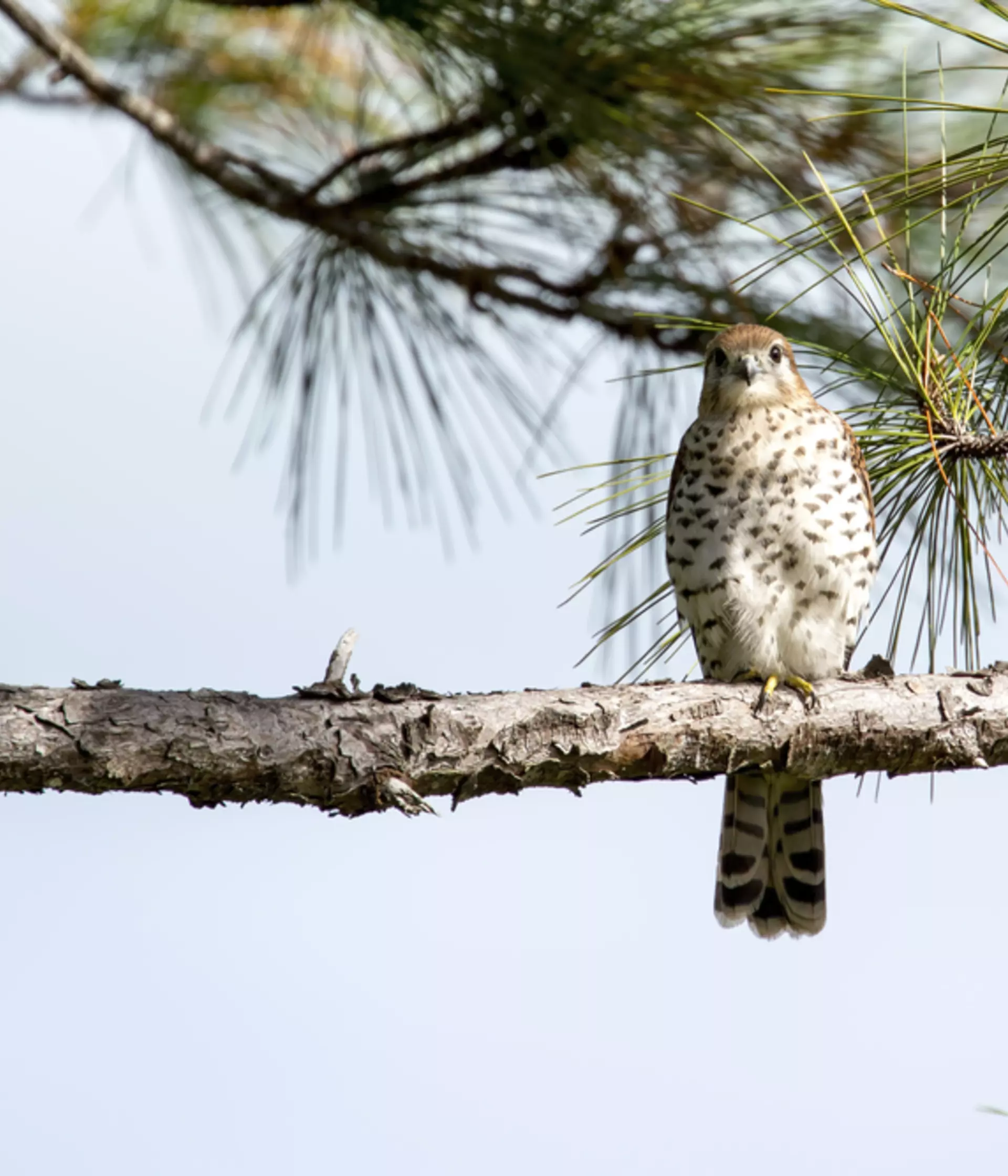Dr Malcolm Nicoll
Senior Research Fellow
The Mauritius Kestrel once looked destined for extinction. There were only four known individuals in 1974, with just two left in the wild and two in captivity. Huge habitat loss and the widespread use of insecticides like DDT to control malaria and Dieldren to protect crops, had the unintended consequence of making them the rarest bird in the world. Together with our partners, we’re working at the cutting-edge of conservation to create a route to recovery for the Mauritius Kestrel.
Today, there are around 300 kestrels, and we’re carefully shaping a more balanced world. Our work is crucial to wildlife conservation globally, through advancing understanding of how small animal populations respond to climate change and habitat loss.
The Mauritius Kestrel recovery programme is regarded as one of the most successful bird recoveries in the world, and we know this success can be replicated. Our work is providing a case study on how to successfully implement a combined strategy of captive breeding, reintroduction and the management of wild populations to reverse population declines.
We’ve developed an in-depth programme of research to guide Mauritius kestrel conservation. Establishing how the reintroduced populations respond to conservation management, changes to their habitat and climate change. Our scientific approach is helping determine the cause of their decline and guide the most effective conservation action.
Partners: Mauritian Wildlife Foundation, National parks and Conservation Service (Government of Mauritius), Durrell Wildlife & Conservation Trust, The Peregrine Fund, CNRS (France), Museum National d’Histoire Naturelle (France), University of Helsinki, University of Leeds and University of Reading.
Sponsors: BBSRC, Dorothy Hodgkin Postgraduate Awards, Leverhulme Trust, Marie Curie Fellowship scheme, NERC, Scenario NERC DTP.
The ZSL Institute of Zoology works closely with the Mauritius kestrel recovery programme, and together with our partners provides the crucial scientific evidence that drives effective field-based conservation actions. The recovery programme is implemented by the Mauritian Wildlife Foundation and the National parks and Conservation Service (Government of Mauritius), with support from the Peregrine Fund (PF) and the Durrell Wildlife & Conservation Trust (DWCT).
Our impact
A viable kestrel population in the Bambous Mountains.
An annual programme of minimal monitoring and management.
Suitably skilled field teams to conduct the monitoring and management programme.
One of the longest running raptor population studies in the world.
A tool for mapping kestrel habitat to identify suitable areas for reintroduction.
Reintroductions into unoccupied areas of suitable habitat in SW Mauritius.
8 PhD studentships and 4 post-doctoral posts.
Join us as we create practical routes to recovery for animals across the world.
We work at speed and scale to drive forward a journey of recovery for the planet, protecting critical species, restoring essential ecosystems, supporting those living with wildlife and inspiring positive change, together, shaping a healthier living world.
